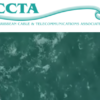News

EU Court of Human Rights Offers No Solace to Convicted TPB Founders
With an unanimous 7-0 vote, a chamber of judges with the European Court of Human Rights (ECHR) has rejected an appeal from Pirate Bay co-founders Fredrik Neij and Peter Sunde.
In coming to the decision, which can be read here, the panel of judges weighed the freedom of expression and freedom of information guaranteed under Swedish law against the need to protect copyright, while also taking into account the specific facts of the defendants’ behavior and actions that gave rise to their prosecution in the first place.
The judicial panel acknowledged that the actions taken by the defendants are “afforded protection under Article 10 § 1 of the Convention and, consequently, the applicants’ convictions interfered with their right to freedom of expression,” but noted that such interference does not breach Article 10 when it is “prescribed by law.” Ultimately, the panel concluded that under the Copyright Act and relevant penal code, “[I]t follows that the interference was ‘prescribed by law.'”
The panel also stated that is was “further satisfied that the interference pursued the legitimate aid of protecting the plaintiffs’ copyright to the material in question.”
It’s also clear that TPB’s famously nose-thumbing attitude toward legal threats and notifications of infringement did not serve Neij and Sunde well in their appeal. As the ECHR panel put it in its decision:
In reaching this conclusion, the Court has regard to the fact that the domestic courts found that the applicants had not taken any action to remove the torrent files in question, despite having been urged to do so. Instead they had been indifferent to the fact that copyright-protected works had been the subject of file-sharing activities via TPB.
There’s a lesson in here for everyone who believes that the law provides them with ‘safe harbor’ from criminal and/or civil liability: If you are relying on the safe harbor provisions of any given statute to protect you from liability under that statute, it’s probably best that you make sure you are doing what you are required to do in order to be eligible for that safe harbor before you find out the hard way that you are NOT eligible for it.
In other words, sorry Fred and Pete; that ship you were awaiting the arrival of already set sail, long, long ago.
Google Empowers DMCAForce to shut down sites…
March 4, 2022

Change the Way you Protect your Content
September 15, 2021

Joins us in the Anti-Piracy Panel at the CCTA 2020 in Bahamas
February 9, 2020
Book Your Meeting During Affiliate Summit
January 22, 2020
Got questions about protecting your digital assets from copyright infringement?


